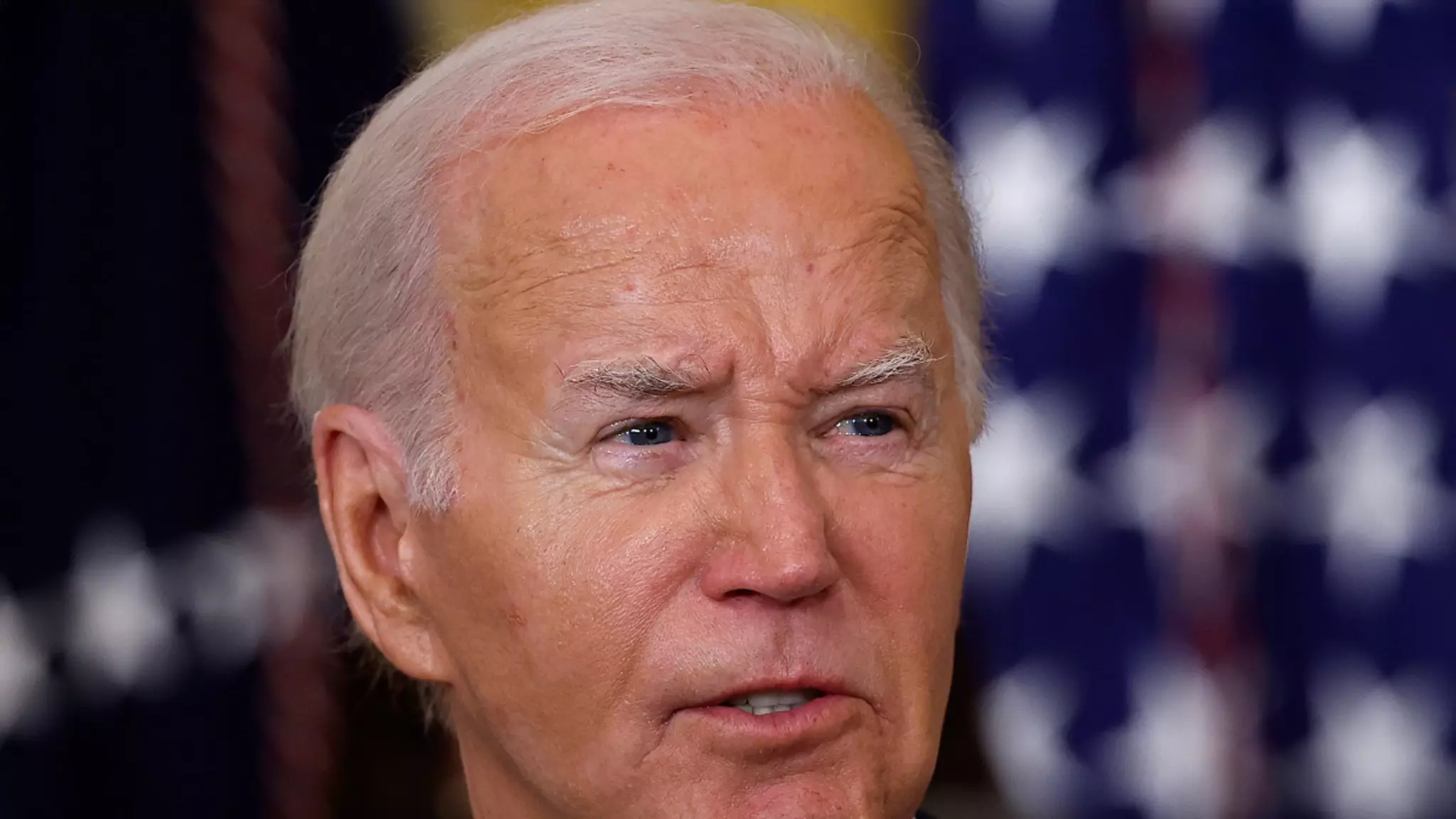As President Joe Biden navigates the tumultuous waters of American politics, his age—and the consequences it carries—has become an unavoidable subject of discussion. Reports have emerged suggesting that Biden’s physical health prompted his aides to consider extreme measures, including the possibility of using a wheelchair during the tense final stages of his campaign against Donald Trump last year. These revelations, as articulated in Jake Tapper’s and Alex Thompson’s book “Original Sin,” cast a stark light on how far political teams may go to protect their leaders from revealing their vulnerabilities.
Despite the clear signs of aging, such as his slow and stiff gait, Biden’s team ultimately decided against the wheelchair strategy. It raises an unsettling question: Should we prioritize political optics over the well-being of our leaders? The dilemma becomes even more complicated when considering the stakes at hand; Biden’s ability to present himself as a vigorous candidate is part of what grants him authority as President.
The Question of Competence
Beyond the physical signs of aging, concerns surrounding Biden’s cognitive abilities have become increasingly pronounced. The pressures of leadership in one of the most polarized political landscapes in recent history only amplify the scrutiny he faces. Some within his party recognized that this issue could become a major liability, leading to whispers about his potential withdrawal from the Democratic race. The environment became hostile, as political maneuverings hinted at Vice President Kamala Harris as a viable alternative. The urgency to shift the narrative was palpable, demonstrating that political parties will often prioritize their chances at victory over the personal struggles of their leaders.
Biden’s recent public appearances, such as his interview on “The View,” indicate that he remains optimistic about his electoral prospects. However, his comments about Kamala Harris potentially losing to Trump—not due solely to political dynamics but also sexism—suggest a level of disconnect from issues affecting many voters. The question of competence in leadership becomes intertwined with the perceptions of ability, gender, and age.
Health Issues: A Long-Term Concern
Currently, as Biden deals with various health assessments—including a recent examination concerning a prostate nodule—his physical state looms ever larger. The White House has made efforts to assure the public of Biden’s vitality. Still, the underlying reality is that concerns regarding his health are not going to dissipate any time soon. The unpredictable nature of health complications acts as a constant reminder that age is a formidable adversary, regardless of experience or wisdom accumulated over decades.
In this context, it is crucial to ask ourselves how we perceive our leaders’ health and the inherent biases that may cloud our judgement. Should age and physical decline disqualify someone from leadership? Or should we embrace a more nuanced understanding of capability, redefining what it means to lead effectively?
As we move forward, the national discourse must remain critically engaged with the intersection of health, age, and political acumen. In the end, how society handles these issues may not only affect Biden’s future but could redefine the landscape of political leadership for generations to come.

